Events
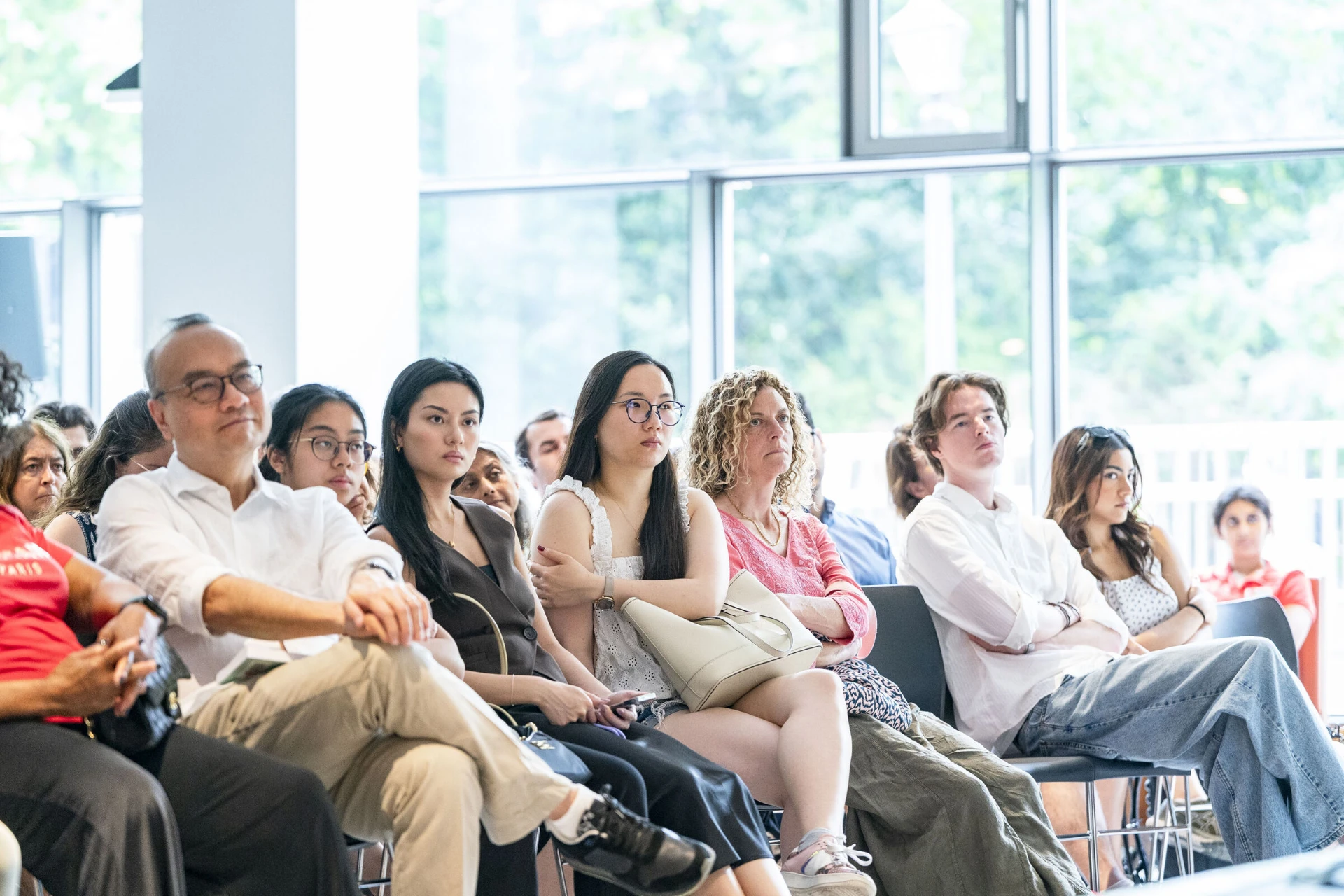
The LSE-Fudan Global Public Policy Hub hosts a wide range of public and student-only events in collaboration with other LSE departments and academic institutions. Please see below for the past and future events.
Through innovative strategic cooperation, the LSE-Fudan Research Centre for Global Public Policy is committed to benefit China, the UK and the world.
Details of upcoming events will be added here in due course.
Past events
Book Launch: Between Families and Institutions: Mental Health and Biopolitical Paternalism in Contemporary China
Author: Zhiying Ma, Crown School of Social Work, University of Chicago
Thursday 22 January 2026
Description of the book:
Between Families and Institutions: Mental Health and Biopolitical Paternalism in Contemporary China explores how families have been centrally and controversially involved in psychiatric governance in post-reform China. Drawing on 32 months of fieldwork, interviews with key stakeholders, and archival and media analysis, it introduces the concept of “biopolitical paternalism” to illuminate how state power, medical authority, and familial care intertwine in managing people diagnosed with serious mental illnesses. Moving beyond China, the book offers a critical lens on the entanglements of care, responsibility, risk, and governance in an age of biomedicalization and neoliberal reform.
Discussant: Yuan Zhang, LSE–Fudan Global Public Policy Hub
Chair: Hans Steinmüller, Department of Anthropology, LSE
The 4th LSE-Fudan Annual Conference on Global Public Policy
The 4th LSE-Fudan annual conference on Global Public Policy, took place in London on 6-7 November 2025. This year’s conference focused on the theme of AI for Global Good. This interdisciplinary gathering explored how artificial intelligence and digital technologies can be harnessed to address pressing global challenges while examining the policy frameworks needed to ensure equitable and sustainable outcomes.
Find out more about the conference here.
Webinar Series on Urban Governance in South Asia
Governmentalities of polycentricity: urban social-ecological system governance and the creation of environmental subjects in colonial Mysore
10th April 2025| 09.00-10.00am UTC Speaker: Dr. Hita Unnikrishnan
Polycentric regimes of social-ecological system governance have largely been associated with positive outcomes, even though empirical evidence towards it remains scant especially over the long term. In this paper, we use critical historical discourse analysis of official speeches to demonstrate that polycentric regimes can maladaptively reproduce inequities and power imbalances. In keeping with the notion that power relations in the colonial present permeate our understanding of the world, we argue that urban environmentalities shaping Mysore’s urban futures are today recognisable in the archives of the colonial princely state. Taking the case of Mysore’s engagement with modernity via changing arrangements of polycentric urban water governance during the first half of the 20th century - we demonstrate that discourses of environmental governance were used to construct, frame and implement different arrangements of polycentric arrangements of water management in major and minor cities according to their importance to the princely state and colonial regime. Polycentric regimes in prominent cities reproduced hegemonic colonial British ideologies through top-down mechanisms, while minor cities, continued to favour traditional decentralised community led management through bottom-up mechanisms b) Power inequities were reproduced and exacerbated as a consequence, empowering British and native rulers while disenfranchising minor cities, and local communities in major cities and c) within polycentric regimes, the subjectivities of both colonial discourses as well as subaltern identities of actor groups become entangled to produce diverse and trajectory dependent urban governmentalities.
Webinar Series on Urban Governance in South Asia
Urban governance and local action: Institutionalizing Climate Adaptation Across Governance Tiers in Nepal
28th March 2025| 09.00-10.00am UTC Speaker: Ms. Sushila Pandit
Effective climate adaptation requires not just policies but strong institutional mechanisms that sustain action across governance levels. This study critically examines the institutionalization of climate adaptation plans and policies within Nepal’s federal, provincial, and local governance structures, specifically focusing on urban contexts. Employing an explanatory qualitative case study approach, we gathered insights from key informants spanning political, governmental, and development sectors. Our findings reveal a stark contrast between a well-established national framework and weaker institutional structures at provincial and local levels, hindering vertical governance effectiveness. Institutionalization is shaped by political will, bureaucratic leadership, resource allocation, intergovernmental coordination, and stakeholder engagement. Notably, our research differentiates between institutional presence and functionality, emphasizing that mere policy existence does not guarantee effective adaptation. By integrating both formal and informal mechanisms, this study advances the discourse on institutionalization, offering critical insights for embedding resilient climate adaptation governance in urban settings.
LSE Global China working group seminars
Unpacking the Power Dynamics in Nairobi’s Housing Sector: Chinese Developers, Local Agency and Political Geographies of Urban Transformation
Wednesday 26th March 2025, LSE
This research foregrounds the housing sector in Nairobi to explore the investments of Chinese developers in the local market and understand the role of local agency in the transformation of Nairobi’s upper-middle class neighbourhoods by Chinese construction companies (CCC). Drawing on the assemblage approach, it addresses a notable gap in the literature on political geography by focusing on urban spaces in the context of Chinese investments in African countries. The study employs a mixed-methods approach, including semi-structured interviews with 51 participants, participant observations, and a survey to examine the scale and distribution of CCC and their estimated arrival time on Nairobi’s urban landscape. It aims to display the power dynamics between Chinese companies and the local enablers and the complex interaction between actors, both horizontally (Chinese SOEs to private companies) and vertically (local architects/ engineers/ consultants to Chinese developers to government-municipal institutions). The research argues that Chinese-built urban development projects in Nairobi result from intricate dynamics where some Kenyans seek reliable and fast income, social status, and solutions to the housing deficit problem while others are adversely affected. Chinese companies, on the other hand, achieve high profit margins thanks to the networks formerly established between Kenyan government institutions and Chinese firms since 90’s and China's strong credibility in Kenya. The findings contribute to the emerging literature on Chinese real estate investments in Africa and deepen our understanding of ordinary people’s relational power in the field of critical geopolitics.
Bio
Melike Toprak is a PhD student at the Development Planning Unit at UCL. Her search focuses on the convergence of Kenyan and Chinese actors in Nairobi’s housing industry since 2002 and the outcomes of their interaction on individuals, the city’s development and the local housing sector.
LSE Global China working group seminars
Digital Vines: Mapping China’s Network of Global Platform Ecosystems
Wednesday 19th March 2025, LSE
Speaker: Weidi Zheng, Postdoc Researcher at the Digital Humanities, KCL
The world’s information systems are arguably owned by American and Chinese companies. So far, studies on China’s globalising Internet adopt either monolith approach or fragmented approach, lacking a comprehensive image to capture the architecture of China’s global information systems. Critically adopting the metaphor of ‘platformisation tree’, this article maps China’s network of global platform ecosystems and identifies its main stakeholders, based on a 2022-2023 ethnography with Chinese tech personnel and venture capitalists in Shenzhen, Indonesia and Vietnam. It argues that China’s globalising Internet shows a triangulation of China, the US, and recipient countries. Similarly to how vines grow and spread using various climbing strategies, Chinese tech companies have developed their ecosystem of digital infrastructures, intermediary platforms, and sectional apps. However, they significantly depend on the GAFAM (Google, Amazon, Facebook, Apple, Microsoft)-led ecosystem, interact with their surroundings, and embed deeply into recipient countries’s digital geographies. This research provides a grounded, empirical perspective to the contemporary debate on China’s digital expansion, highlighting varying techno-mediated positionalities and socially driven innovation in the Global South. It contributes to the conceptualisation of ‘global platform ecosystems’ as a relational and ecological social technical system, situated within a dynamic integrity of ‘centre-periphery’, ‘online-offline’ and ‘human-non-human’.
Bio
Weidi Zheng recently completed her postdoctoral research in Digital Humanities at King’s College London, serving as the lead researcher (China) on the ERC-funded project ‘Digital Infrastructures along the New Silk Road’. She earned her PhD in Global Media and Post-national Communications from SOAS University of London where she laid the interdisciplinary foundation of media studies and culture anthropology. Her PhD involved a year-long ethnographic study on the discursive competitions surrounding China’s BRI infrastructures, working with Kenyan- Chinese reporters, SOEs, expatriates, and small traders in Nairobi and Beijing. Her research interests include media anthropology, platform economy, digital infrastructure, and the values and politics of technology. She has published in leading journals such as China Quarterly, International Journal of Communication, Information, Communication & Society, and Journal of African Cultural Studies.
LSE Global China working group seminars
Digital Bridges: (In)formality, Digital Platforms, and Cross-Border Trade in Kazakhstan
Wednesday 12th March 2025, LSE
Speaker: Oyuna Baldakova, (Research Associate at the KCL DIGISILK Project)
Drawing on "globalisation from below," which emphasises grassroots, localised, and often informal processes of global interconnectedness, this talk examines the evolving dynamics of formal and informal trade in Kazakhstan. It focuses on traders who source goods from China and sell them locally through marketplaces like Kaspi and digital platforms such as Instagram. Based on fieldwork interviews conducted in 2022 and 2023 with local traders, Kaspi developers, and logistics experts in Kazakhstan, I examine how traders leverage Kazakhstani diasporas and personal networks abroad and combine technological infrastructures originating from China, Russia, the USA, and Kazakhstan to navigate regulatory frameworks and sustain their sales operations.
The article explores how small- and medium-scale traders employ global and local platforms, including apps like WeChat, AliExpress, Pinduoduo and 1688 for procurement, and Yandex, Kaspi, and Instagram for sales. These platforms enable traders to source goods from international markets and sell locally, operating across a spectrum of formality and informality. The findings reveal varied levels of (in)formality: some traders adhere to regulatory frameworks by using formal logistics routes and marketplaces, while others leverage the flexibility of informal channels such as "cargo" transportation and social media to bypass bureaucratic constraints. This variety highlights the fluidity between formal and informal economies, which are being reshaped by digital transformation.
Bio
Oyuna Baldakova is an associate researcher on the ERC-funded DIGISILK project in the Digital Humanities Department at King’s College London. Her research focuses on various aspects of the Digital Silk Road and its diverse actors in Kazakhstan, including telecom infrastructure development and the role of Huawei, as well as domestic electronics production and its connections to Chinese suppliers. She is also finishing her PhD studies at the Free University of Berlin, where her dissertation examines the implementation of the Belt and Road Initiative infrastructure and industrial projects in Kazakhstan.
Oyuna holds a Master’s degree in Modern East Asian Studies from Goethe University Frankfurt and has a diverse background in international development, including experience with EU International Partnerships and UNESCO Bangkok. She has conducted research and written for several organizations, including the Friedrich Ebert Stiftung, Carnegie Endowment, Mercator Institute for China Studies (MERICS), International Transport Workers’ Federation, and Center for Strategic and International Studies (CSIS).
Webinar Series on Urban Governance in South Asia
Risk Governance or Risky Governance: Adaptation and Inclusion in Delhi's Heat Action Plan
21st February 2025 | 09.00-10.00am UTC Speaker: Dr Anshu Ogra
In May 2024, Delhi experienced record-breaking heatwaves, with temperatures crossing 50 degrees in some parts. Within a month, this was followed by record-breaking rainfall of 228.1 mm within 24 hours (Kunal, 2024; The New Indian Express, 2024). Both events reported casualties across the city (Jaiswal, 2024; DTE, 2024). While climate change was mentioned in the news, what grabbed the headlines were various governance issues like access and availability of potable water during heatwaves and lack of clarity about who controlled which part of the city’s drainage (Kaul & Lakhera, 2024). In my presentation, I will delve into Delhi's disaster management governance structure, specifically focusing on the role of the Delhi Disaster Management Authority (DDMA). Despite its coordination efforts, the DDMA operates within a larger governance framework that limits its authority. This structural context significantly impacts how essential services are accessed during heatwaves, contributing to varied experiences across Delhi's population. By examining these disparities, I aim to highlight their implications for the effectiveness and public perception of heat action plans. Overlooking these disparities not only undermines the DDMA's response capabilities but also hinders efforts to address climate change adaptation comprehensively. I argue that prioritizing access and inclusion is pivotal in evolving current heat action plans into robust adaptation strategies tailored to Delhi's heatwave vulnerabilities. This discussion seeks to underscore the importance of governance reforms in enhancing resilience and equity in urban climate adaptation initiatives.
LSE Global China working group seminars
Grounding China’s global integration: Land politics and belonging of Chinese migrant farmers in Africa
Wednesday 4th December 2024, LSE
Speaker: Dr Yuezhou Yang (Research Fellow, LSE-Fudan Global Public Policy Hub)
Abstract:
The new wave of ‘global China’ scholarship investigates the intricate entanglements between domestic China, global China, and the world. Taking a relational perspective, my paper contributes to this scholarship by examining how the experience of entrepreneurship of Chinese migrants entangles with the histories, institutional changes, and broader socio-political dynamics in Tanzania and Zambia. Using descriptive data collected from interviews and field site observations, and the ‘mixed embeddedness’ approach, I investigate the interplay between the specific set of resources of individual Chinese migrants and from their group relations and the opportunity structure created by various property relations. I argue that different property relations explain why many Chinese ‘would be migrants’ eventually stayed in Zambia, whilst very few opened farms in Tanzania in their path of migration. The findings both contribute to the recent literature on Chinese migrants in Africa and the scholarly debates on epistemological moves to grounding global China studies.
LSE Global China working group seminars
Emotional encounters: Exploring the affective dimensions of China’s overseas infrastructure investment (With Dr. Ken Ran Hu)
Wednesday 23 October 2024, LSE
Abstract
Infrastructure investment is often assumed to be pursued on the basis of (bounded) rationality which reflects the ‘interests’ or negotiated interests of participating actors. As such, emotions seen as irrational factors are either ignored or explained away by such rational reasoning as economic benefits and geopolitical influences in the context of China’s overseas infrastructure investment. This paper challenges this view by proposing an analytical framework that examines three pathways through which emotions influence its conceptualisation, development, and experience. Employing emotion discourse analysis, the paper applies this framework to COSCO’s Piraeus Port investment (CPPI), revealing complex emotional dynamics among local, national, and international actors. The analysis demonstrates that emotions influence transnational infrastructure development when they provide affective frames that shape cognitive processes and interpretations of events, ideas, and relationships, when they are used as catalysts to drive collective actions and policy changes, and when they become embedded in political institutions. This paper contributes to the literature on emotions in International Relations by providing a systematic analysis of what emotions do, and how, in foreign policy processes, and to China studies by illuminating the emotional underpinning of its overseas infrastructure investment. The findings suggest the need to reconceptualise transnational infrastructure development as socio-economic-emotional assemblages, acknowledging the critical role of emotions alongside economic and political factors.
Bio
Dr. Hu has a PhD in Politics from the University of York (2022). His research focuses on critical International Relations theories, grand strategy, Chinese Foreign (Economic) Policy, and the Indo-Pacific international relations. He is interested in developing an interdisciplinary and cross-regional understanding of Chinese engagements across Europe and their different political and geopolitical implications from a pan-European perspective.
LSE Global China working group seminars
Party in Overseas Chinese State-owned Enterprises (with Hong Zhang)
Wednesday 16 October 2024, LSE
Speaker: Dr. Yuan Wang, (Assistant Professor at Duke Kunshan University)
Chair: Dr Yuezhou Yang (Research Fellow, LSE-Fudan Global Public Policy Hub)
Abstract
What is the role of the Chinese Communist Party (CCP) in state-owned enterprises’ (SOEs’) overseas operations? Extensive literature have examined the functions of Party in Chinese SOEs, particularly focusing on CCP’s efforts in maintaining control over the increasingly powerful businesses and whether the Party institutions contribute to the effectiveness of corporate governance. The roles of CCP institutions in overseas SOEs remain rarely examined, however, and this paper serves as an initial attempt to fill this gap with innovative evidence. We argue that Chinese Party organizations in overseas SOEs penetrates in various aspects of project management and in professional, social, and even personal life of Chinese employees, to the level that it may no longer be possible to distinguish the Party structure from the corporate management structure. Variegated forms of party-building activities serve not only to demonstrate political loyalty, but also provide mechanisms for social mobilization targeting Chinese employees for effective project implementation, as well as resource mobilization for financial and diplomatic support from their headquarters and government. Internally oriented, these party activities do not aim at ideological spreading to host countries; in fact, these party activities are carefully concealed from their local employees and host communities. Empirical data is collected through one-month participatory observation in a Chinese construction SOE in Ethiopia in August 2024 and multi-year fieldwork in Kenya, Ethiopia, Nigeria, Angola, Pakistan and Beijing on Chinese SOEs’ overseas operations. These primary data is triangulated with online ethnography of the social media accounts of Party organizations in various SOEs as well as policy and media documents. This study represents one of the first attempts to understand CCP’s role in overseas SOEs by detailing several grassroot party-building activities and their rationale and functions drawing on original physical and digital ethnographical work and multiyear interview data. This study also seeks to contribute to an emerging call in the field of Chinese political economy to "bring the party back in," and discuss the daily realities of "party-state capitalism" beyond China.
Bio
Dr. Wang is an Assistant Professor of International Relations at Duke Kunshan University starting from July 2022. Her teaching and research interests include global China, African politics, and comparative political economy of development. Her research covers African state effectiveness and China’s economic and political engagement with Africa. Her book The Railpolitik (Oxford University Press) investigates why Chinese-financed and -constructed develop into starkly different trajectories in different African countries.
Webinar Series on Urban Governance in South Asia
Decolonising Urban Governance: developing a systemic understanding of institutional responses to climate change in South Asia
8th October 2024 | Birmingham Institute for Sustainability and Climate Action, University of Birmingham
Organisers
Dr Tanvi Deshpande | LSE-Fudan Global Public Policy Hub
Dr Tahmina Yasmin | University of Birmingham
Workshop overview
South Asia, comprising of Afghanistan, Bangladesh, Bhutan, India, Maldives, Nepal, Pakistan, and Sri Lanka, is diverse in terms of its topographies, climates, histories, socio-cultural practices, economies and politics. Cities in South Asia host a significant proportion of global urban population who are severely impacted by interconnected issues of development deficits, climate change and disaster risks. Moreover, existing governance structures, often manifestations of colonial legacies, are largely disconnected from the socio-cultural, economic and environmental realties of South Asian cities. Rapid urbanization and escalating climate impacts, particularly in South Asian cities, necessitates a critical evaluation of existing governance mechanisms as the 2030 deadline for the Sustainable Development Goals (SDGs) approaches.
Workshop objectives
Theworkshop brought together early-career researchers (ECRs) to share their research on climate change adaptation, disaster risk reduction, sustainability, and/or urban development in diverse South Asian cities. ECRs critically engaged with urban governance scholarship and identified the need for contextual and innovative urban governance mechanisms to build sustainable and resilient cities. This workshop enabled cross-learnings and explore collaborations across the region, which is otherwise challenging due to regional geopolitics.
Workshop outcomes
- Established a network of early career researchers working on urban governance (development/climate change/disaster risk reduction) in South Asia
- Co-developed a multi-authored perspective on urban governance in South Asia (submitted to Urban Studies journal)
- Launched a virtual and monthly webinar series on ‘Urban governance in South Asia’ for early career and mid-career scholars to share their research and receive feedback
- Exploring research collaborations through conferences, workshops and publications
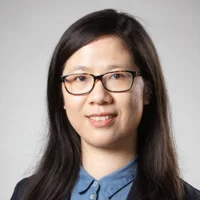
Getting schools to work better: insights and reflections from China and India
Thursday 21 March 2024
6.30pm-8.00pm GMT
This event launches the book Getting Schools to Work Better: Educational Accountability and Teacher Support in India and China by Yifei Yan
Getting schools to work better is a challenge just about everywhere. Many policy experts prescribe measures for strengthening school accountability either by government command and control or through alternative market and societal actors. In challenging this conventional wisdom, Yifei Yan's book examines how China and India are tackling the challenge of getting schools to work better, with a specific focus on supporting teachers, along with traditional accountability-strengthening measures. The book draws implications from its case studies for how education systems can be designed to enhance student learning towards the fulfilment of Sustainable Development Goal 4.
This book will appeal to a wide spectrum of scholars and practitioners in the fields of comparative education, public administration, public policy, and development studies, among others. It will be especially interesting to those from the developing world facing similar accountability challenges described.
More about our speaker and chair
Discussant: Mobarak Hossain is Assistant Professor in the Department of Social Policy, LSE.
Speaker: Yifei Yan isAssistant Professor in Public Administration and Public Policy at the Department of Politics and International Relations, University of Southampton. Her research on comparative public policy and administration has won international awards from the Indian Public Policy Network and European Group for Public Administration, among others.
Chair: Shuang Chen is Assistant Professor in International Social and Public Policy at the Department of Social Policy, LSE.
Venue: MAR. 1.08, Marshall Building, LSE
More information about the event and how to register can be found here.

Fast-tracked city unbound? Speed, scale, and risk in China’s overseas investment
Thursday 14 March 2024
12.30pm-2.00pm GMT
Fast urbanism has been one of the key aspirational characteristics of contemporary China. Speedy construction and economy of scale have enabled the rapid process of urbanisation in China. In recent years, real estate developers, who facilitated urban accumulation, have also attempted to advance into overseas markets, including London, which is the main case study for this paper. How do the experiences of speedy and large-scale urban development in China translate to overseas destinations? What risk aversion strategies do they adopt? What does this tell us about the nature and agents of capital? To address these questions, this talk engages with an in-depth empirical study of an urban redevelopment project in East London that involved a Chinese developer. By evaluating the business practices of the Chinese developer in London and tracing such practices back to China, this talk aims to shed light on the nature of urban manifestations of global China and the meaning of ‘ethnic capital’.
Speaker: Professor Hyun Bang Shin (Department of Geography and Environment, LSE)
Chair: Dr Timothy Hildebrandt (Department of Social Policy, LSE)
Venue: CBG.1.05 (1st floor), Centre Building, LSE
Lunch and refreshments will be served before the seminar.
This seminar is open to LSE staff and students only.
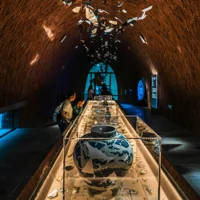
Visualising China’s Story in Museum Exhibitions: Insights from the Central State Museum of the Republic of Kazakhstan
Wednesday 28 February 2024
17.00pm-18.30pm GMT
This seminar is organized by LSE Global China working group. It is for PhD researhcers and early career scholars at LSE and beyond working on China and global south related studies. It is a forum for discussions and questions on China in development contexts. Researchers from all theoretical backgrounds and methodological traditions are welcome.
Speaker: Giulia Sciorati (LSE Fellow, Department of International Relations)
This seminar will be hosted in hybrid format, via Zoom and in-person at LSE Connaught House 7.05, LSE
If you would like to join the working group, attend the seminar, and/or present in the future, please email Yuezhou Yang (y.yang91@lse.ac.uk)

New Thinking on Rural Development in China
Tuesday 13 February 2024
12.30pm-2.00pm GMT
The talk will present China’s ongoing rural revitalisation program through different cases. The speaker has been working on rural development programs in Yunnan, China since 2015. Faced with challenges of rural-urban disparity and rural decline, it is critical to explore new development approach by adopting rural-urban parallel rather than sequential transformation. Rural revitalisation program is not simply increasing investment but focusing on regenerating new rural economy appropriate for small-holder farmers’ development. The speaker argues that in the past two decades, the development process from poverty reduction to rural revitalisation in rural China has produced a new development narrative. But it has been largely ignored by the development community.
Speaker: Professor Xiaoyun Li (China Agricultural University).
Chair: Professor James Putzel (Department of International Development).
Venue: CKK.1.07 (1st floor), Cheng Kin Ku Building, Lincoln's Inn Fields, LSE
Lunch and refreshments will be served before the seminar.
This seminar is open to LSE staff and students only.
Watch the seminar here. Listen to the podcast here.

‘A Tale of Two Chinas in Africa’: Multistakeholder perspectives on Chinese involvement in mining for critical raw materials in Namibia
Wednesday 31 January 2024
17.00pm-18.30pm GMT
This seminar is organized by LSE Global China working group. It is for PhD researhcers and early career scholars at LSE and beyond working on China and global south related studies. It is a forum for discussions and questions on China in development contexts. Researchers from all theoretical backgrounds and methodological traditions are welcome.
Speaker: M. Adil Sait (PhD Candidate in Economic Geography, LSE)
This seminar will be hosted in hybrid format, via Zoom and in-person at LSE Connaught House 7.05, LSE
If you would like to join the working group, attend the seminar, and/or present in the future, please email Yuezhou Yang (y.yang91@lse.ac.uk)

Workshop: China and the World: A Critical Discussion on State Capacity in the Developing Countries
Monday 29 January 2024
10.00am-4.00pm GMT
The rise of China and the Global South has put the conventional narrative of weak state capacity of developing countries under scrutiny. This workshop brings together scholars working on contemporary issues in developing countries from a state capacity perspective.
Participants are urged to present their work in progress or unpublished articles, as the workshop is designed in a manner to share on-going work and receive feedback.
We leave it to the discretion of the participants on what they wish to present and receive feedback (e.g. research question, framework, methodology, applications).
Programme can be viewed here.
Chairs: Dr Yuezhou Yang (Research Fellow, LSE-Fudan Global Public Policy Hub) and Dr Tanvi Deshpande (Research Fellow, LSE-Fudan Global Public Policy Hub).
Venue: Connaught House 7.05, LSE
Register here.

China and the World Seminar Series:The Evolution of China's Development Cooperation
Thursday 25 January 2024
12.30pm-2.00pm GMT
The talk will review three changes that drives the transition of China’s international development cooperation system: narrative change, institutional change, and strategic change. It will then analyze the recent trends of development finance between China and OECD DAC countries. It argues that, despite some conceptual and structural differences, China and DAC countries demonstrate similar patterns of development finance in aligning development and foreign policy goals.
Speaker: Professor Yu Zheng (Fudan University).
Chair: Professor Bingchun Meng (Director of the LSE-Fudan Global Policy Hub).
Venue: CBG.1.05 (1st floor), Centre Building, LSE
Lunch and refreshments will be served before the seminar.
This seminar is open to LSE staff and students only.
Watch the seminar here. Listen to the podcast here.

China and the World Seminar Series:The Role of Institutions in Urban Climate Governance: Learnings From the Global South
Wednesday 6 December 2023
1:00pm-2.00pm GMT (online, please note the event has been moved online due to rail strikes)
Within the ecosystem of urban climate governance, Dr Deshpande seeks to understand the role of local institutions in pursuing urban climate policy or action in the Global South. Countries in the Global South are experiencing rapid urbanization and the city or municipal governments, operating under weak or under-developed governance structures, are struggling to meet the needs of a growing urban population. Under such circumstances it seems unlikely that these local institutions would possess the capacity to pursue urban climate action or policy. The aim of Dr Deshpande's research is to unpack urban climate policymaking and understand the role of local institutions in this process.
Speaker: Dr Tanvi Deshpande (Research Fellow, LSE-Fudan Global Public Policy Hub).
Chair: Professor Bingchun Meng (Co-Director of the LSE-Fudan Research Centre for Global Public Policy and the LSE-Fudan Global Policy Hub).
Watch the seminar here. Listen to the podcast here.

LSE-Fudan Annual Conference 2023 - Public Policy Priorities and Challenges for China and the World
21 - 22 November 2023
LSE-Fudan Research Centre for Global Public Policy/ Global Public Policy Hub will hold its Annual Conference 2023 at the LSE devoted to public policy challenges and priorities for China and other countries.
For more information, please see conference page.
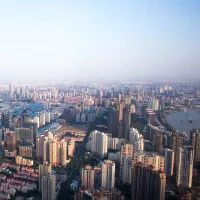
Global China as Method? Excellent Idea! But How? — A Reflection on My 8-Year Ground-Based Research on Chinese Outward FDI in Africa and Europe
Wednesday 15 November 2023
17.00pm-18.30pm GMT
This seminar is organized by LSE Global China working group. It is for PhD researhcers and early career scholars at LSE and beyond working on China and global south related studies. It is a forum for discussions and questions on China in development contexts. Researchers from all theoretical backgrounds and methodological traditions are welcome.
Speaker: Weiwei Chen (Research Associate at Open University).
This seminar will be hosted in hybrid format, via Zoom and in-person at LSE Connaught House 7.04, LSE
If you would like to join the working group, attend the seminar, and/or present in the future, please email Yuezhou Yang (y.yang91@lse.ac.uk)
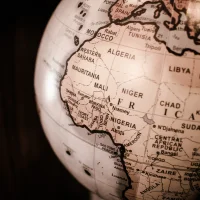
The Development Dilemma: Geopolitical Contestation and its Impact on African Nations
Wednesday 8 November 2023
17.00pm-18.30pm GMT
This seminar is organized by LSE Global China working group. It is for PhD researhcers and early career scholars at LSE and beyond working on China and global south related studies. It is a forum for discussions and questions on China in development contexts. Researchers from all theoretical backgrounds and methodological traditions are welcome.
Speaker: Obert Hodzi (Senior Lecturer at University of Liverpool).
This seminar will be hosted in hybrid format, via Zoom and in-person at LSE Connaught House 7.04, LSE
If you would like to join the working group, attend the seminar, and/or present in the future, please email Yuezhou Yang (y.yang91@lse.ac.uk)

China and the World Seminar Series: Property Institutions and State Capacity: Comparative Analysis of Chinese Agricultural Projects in Zambia
Thursday 26 October 2023
12.30pm-2.00pm GMT
A long-standing literature argues that African states have weak capacity, especially in regulating its land. Increasingly, scholarly work on foreign land acquisition in developing countries recognizes the ‘active state’ explanations that the African states and subnational actors have played an important and diverse role in (re)structuring access and control over land and natural resources. In this talk Dr Yang will contribute to this scholarship by focusing on the role of African property institutions and propose a theory of how land tenure regimes structure the processes of investment, including land acquisition and continued control over land after acquired.
Speaker: Dr Yuezhou Yang (Research Fellow, LSE-Fudan Global Public Policy Hub).
Chair: Professor Bingchun Meng (LSE-Fudan Hub Council Member).
Venue: The Sumeet Valrani theatre, Centre Building, LSE
Lunch and refreshments will be served before the seminar.
This seminar is open to LSE staff and students only.

Expropriating Land for Rail: Contested Land Governance and Citizenship Along China-Led Rail Development in Kenya
Wednesday 18 October 2023
17.00pm-18.30pm GMT
This seminar is organized by LSE Global China working group. It is for PhD researhcers and early career scholars at LSE and beyond working on China and global south related studies. It is a forum for discussions and questions on China in development contexts. Researchers from all theoretical backgrounds and methodological traditions are welcome.
Speaker: Dr Yuezhou Yang (Research Fellow, LSE-Fudan Global Public Policy Hub).
This seminar will be hosted in hybrid format, via Zoom and in-person at LSE Connaught House 7.04, LSE
If you would like to join the working group, attend the seminar, and/or present in the future, please email Yuezhou Yang (y.yang91@lse.ac.uk)
AT 2023 seminars are funded by LSE-Fudan Global Public Policy Hub
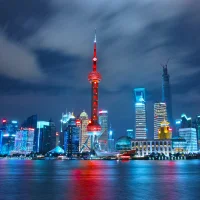
Civilizational Public Administration: An Imagination or A Necessity?
Friday, 24 March 2023
This is Lecture 36 of the Fudan-LSE Lecture Series. Chair: Professor Yijia Jing (IGPP, Fudan University). Speaker: Professor Lihua Yang (School of Government, Peking University)
More information available here.


Pension Policy and Governmentality in China: Manufacturing public compliance
Monday, 7 November LSE-Fudan Hub together with LSE Press held a book launch event for Dr. Yang Wang and her newly published book on pension policy and governmentality in China. The event was chaired by Head of LSE Press, Professor Patrick Dunleavy. Speakers also included Professor Noam Yuchtman (Department of Management) and Dr. Carrie Friese (Depatment of Sociology).
Video of the event is available here.
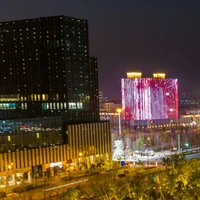
The LSE - Fudan Two Day Lecture Series
A two-day lecture series was held on 27 and 28 June 2022 aimed potential students wishing to enrol in the double degree programmes of the two universities. Currently, students wishing to study on the double degree programme can chooce between Global Political Economy, Social Policy, International Development and Media and Communications.

Launch Event
China and the World in the Post-COVID Era: a new agenda of public policy
Celebrating the launch of the LSE-Fudan Global Public Policy Hub, the online public event "China and the World in the Post-COVID Era: a new agenda of public policy" will take place on Monday 21 February 2022, from 6:30pm to 8:00pm.
In the event, experts in health policy, development economics, urban governance and public administration will be discussing key public policy challenges that China and the world faces post-pandemic.
This event forms part of , a series about the direction the world could and should be taking after the crisis.
Listen to the podcast or watch the video.